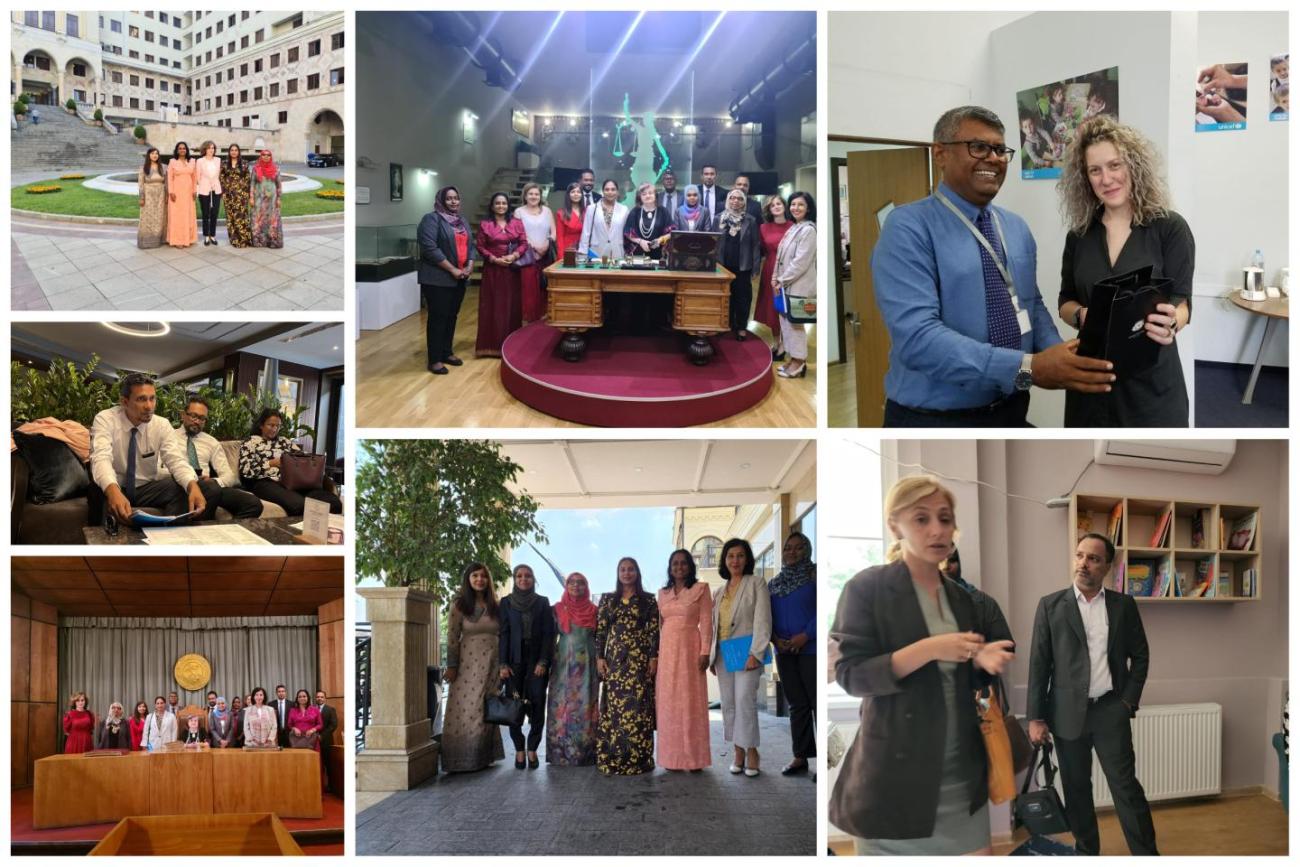Strengthening Child Protection systems with a multi-stakeholder approach: A priority for the Maldives

A multi-stakeholder delegation from Maldives undertook a 5-day learning visit to Georgia to exchange best practices related to child rights and child protection
In June 2022, a multi-stakeholder delegation from the Maldives embarked on a five-day learning visit to Georgia to exchange and share good practices in the implementation of child rights codes and roll-out of related multi-disciplinary systems for child protection. The mission was facilitated by UNICEF offices in Georgia and in the Maldives.
The delegation was oriented on the UNICEF support for children’s protection system strengthening agenda, and was led by the Minister of Gender, Family and Social Services (MoGFSS), accompanied by the Minister of Education (MoE), The Chief Judge of the Family Court, The Deputy Commissioner of Police, The Children’s Ombudsperson, a Member of Parliament from the Human Rights Committee, the Mayor of Favumulah as well as representatives from the Ministry of Foreign Affairs, and Social Services and UNICEF.
Both Maldives and Georgia have had their key overarching legislation on child rights, for the former the Child Rights Protection Act as well as the Juvenile Justice Act, and the latter the Child Rights Code, approved in 2019.
Also, both countries have been working steadily in improving child protection systems. Over the years, Georgia has developed an impressive track record of successful de-institutionalization of children by establishing family homes, some modeled after the SOS children’s village approach.
The foster care system in Georgia is quite developed and some of the multi-disciplinary approaches that they have put in place prior to the approval of the code have proven to be very effective in addressing child rights. Further, Georgia has a very well-organized and recognized social work profession.
For the Maldives delegation, the visit was very useful in having a perspective on the good initiatives already underway in the country such as the existing legislation and the related mechanisms (i.e. the Child Rights Council and the Children’s Ombudsperson), the existence of IBAMA model- community social groups that have been tested in seven atolls as a multi-sectoral prevention and referral mechanism at the island level as well as some of the efforts towards de-institutionalization of children.
The exposure to other examples of interventions and measures from Georgia, such as the one-stop shop for the survivors of sexual violence, the organization of the social work profession, the collaborative approach by way of multi-disciplinary teams as well as the advanced foster care programme were deemed as among good practices that can accelerate results for children in both countries.
Some of the key reflections from the visit included the need for the governments to ensure adequate allocation of resources for the effective implementation of the legislation and identify steps that can be taken to attract more young people to the social work profession to address capacity gaps in that sector.
Further, to ensure child rights are protected and safeguarded, there must be good coordination and relationship between central and local governments and ensure mainstreaming of child rights understanding and learning across front line workers from different sectors who are dealing with children’s issues.
In addition to that, delegates noted the importance of a multi-disciplinary, collaborative, and child-centered approach and systems for prevention, referral, and effective protection of children in the family, in schools, and in the community.
During the visit, the delegation paid a courtesy call to the Minister of Foreign Affairs of Georgia, met the Parliamentary Council on the protection of the rights of the Child and the Chair of the Human Rights and Civil Integration Committee, as well as meeting with the Minister of Health, Labour and Social Services, Minister of Education, and the Director of the Agency for State Care.
They also met several NGOs working with the most vulnerable children in Georgia and visited the SOS Children’s Village. Held meetings with the Chairperson of the Association of Small Group Home Service Providers in Georgia, and the Co-Founder and Director of the association. held meetings at the Supreme Court of Georgia with the Chairperson and representatives from the Court of Georgia and Appellate Court Judges, and the Police. They visited a programme that supports children with disabilities and held talks with the Dusheti municipality Mayor and social service team. UNICEF reiterated its readiness to continue its technical assistance to the Government of Maldives in this journey.







